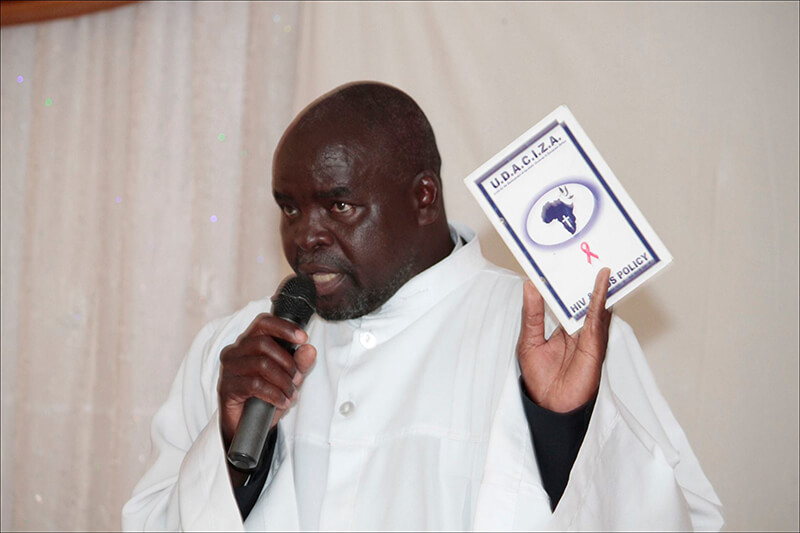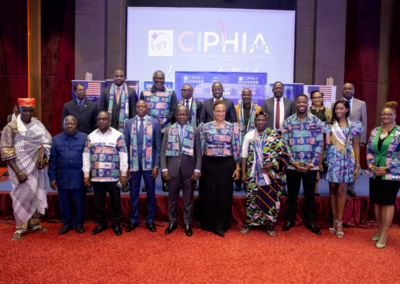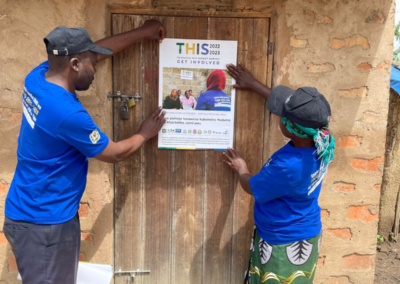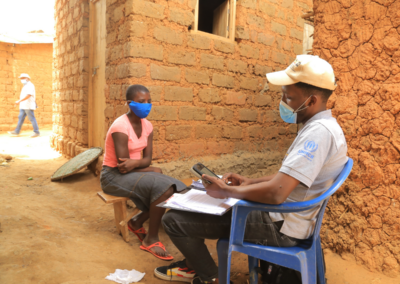Before the PHIA survey teams begin to knock on household doors, community workers visit selected communities, known as enumeration areas, to help community leaders and members understand some of the sensitivities that surround HIV and to strengthen support for the survey. In Zimbabwe, community workers held a recent workshop with members of the Apostolic religious community to make them aware of the project’s potential to improve national health.
Approximately 85 percent of Zimbabweans are Christians, and of those, over one-third are members of the Apostolic Church, a denomination which follows the teachings of Christ’s apostles. In Manicaland Province, where ZIMPHIA survey teams are visiting 1,620 households, about one-quarter of the population is Apostolic. To help encourage full participation of this group, the ZIMPHIA team reached out to the Secretary General of the Union for the Development of Apostolic Churches in Zimbabwe Africa (UDACIZA), the churches’ governing body. As Godfrey Musuka, ICAP’s country representative in Zimbabwe and project director for ZIMPHIA noted, “It’s important for ZIMPHIA to survey a nationally representative ‘slice’ of Zimbabwe, and we asked the Apostolic Church to work together with us on this goal.”
More than 50 Apostolic leaders and bishops attended the workshop, as well as representatives from the Ministry of Health and Child Care and its ZIMPHIA partners: ICAP, the National AIDS Committee, and the Biomedical Research & Training Institute. At the meeting, Dr. Mutsa Mhangara from the Ministry of Health acknowledged the religious leaders’ support, noting that the Ministry of Health “provides health services to all groups in the country and ZIMPHIA provides a unique opportunity to get information to guide service provision and we thank you for accepting this project.”
Ministry of Health representatives gave presentations on the methodology and goals of the survey and explained how the data will be used to improve HIV services throughout Zimbabwe. The presenters also emphasized that the survey is a government program that will inform future health interventions so they can best serve all citizens, including the Apostolic community.
“The Apostolic representatives said that they felt honored to be invited to the meeting because it showed the ZIMPHIA team recognized them as active, important community leaders and provided an opportunity for their voice to be heard,” said Musuka.
The bishops acknowledged HIV as a major health problem in Zimbabwe, and indicated that they were open to any intervention that allowed the government to better understand and respond to the epidemic. The workshop was well-received and included strong statements of support for the survey from church leaders. Rev. Edison Tsvakai, secretary general of UDACIZA, said, “We assure you that we will work together to make this survey a success and we are glad because we will now be able to answer questions when asked about ZIMPHIA by our members.” The UDACIZA endorsed ZIMPHIA, saying “The ZIMPHIA survey is a good project for Zimbabwe and the Apostolic group of churches welcomes it and will participate and support the survey in every way possible.”
Their endorsement and support went beyond the workshop. Shortly after the meeting, the group formed a committee of bishops to assist with community mobilization in Manicaland. The bishops made themselves available to consult with the ZIMPHIA community mobilizers and advise them in case they need help in working with Apostolic Church members.
The ZIMPHIA team’s successful engagement with this religious community will inform community mobilization in other countries as additional PHIA surveys roll out.










